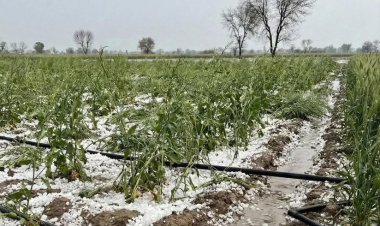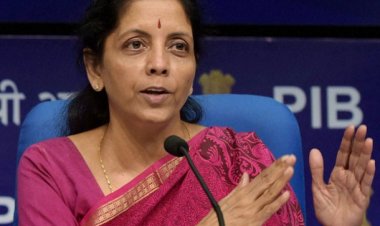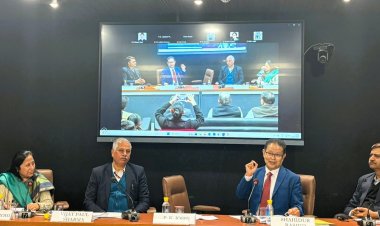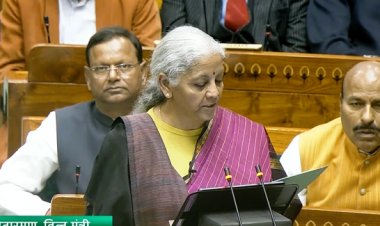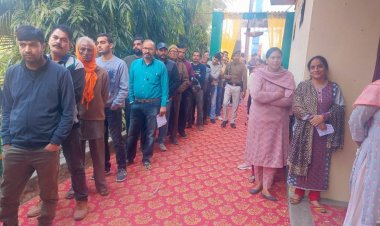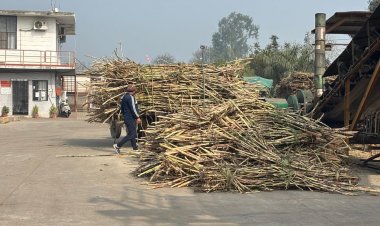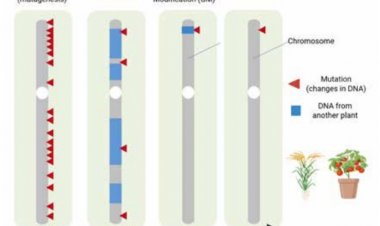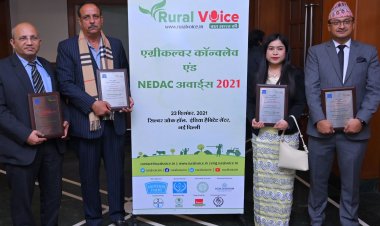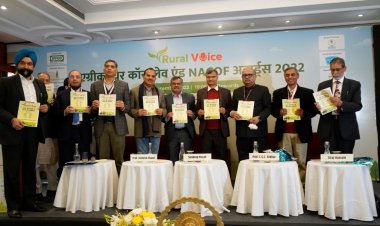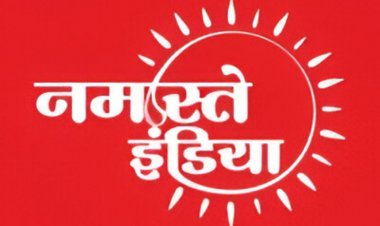Focus will be on Farmer Centric Research: Dr. ML Jat
Dr. Mangi Lal Jat, the new Director General of the Indian Council of Agricultural Research (ICAR) and Secretary of the Department of Agricultural Education (DARE), in an exclusive interview with Rural World Editor-in-Chief Harvir Singh on the country's agricultural sector, research and policy issues.
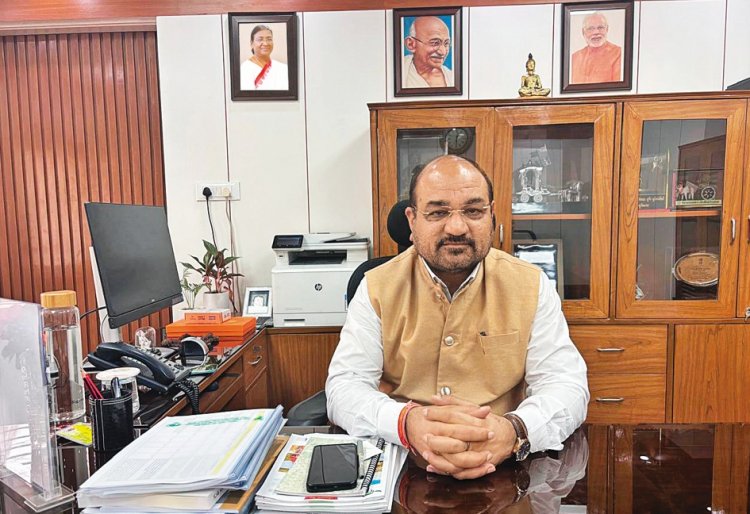
The Indian Council of Agricultural Research (ICAR) plans to change its research methods and make the needs of farmers the basis of its research. Along with this, the functioning system of all the institutes working for agricultural research and state agricultural universities is also going to change, while the role of Krishi Vigyan Kendras will also be redefined so that their role in agricultural extension can become more effective.
In a way, the concept of One ICAR will be taken forward. Also, the emphasis will be laid on a holistic agri food system approach at the center of research and methodology. Dr. Mangi Lal Jat, the new Director General of the Indian Council of Agricultural Research (ICAR) and Secretary of the Department of Agricultural Education (DARE), said in an exclusive interview with Rural World Editor-in-Chief Harvir Singh on the country's agricultural sector, research and policy issues.
Here are the excerpts of this interview with Dr. Jat: -
Agriculture is the most important sector for the country's economy. Coming from a rural background, you have a long experience in the field of agricultural research in national and international institutions. Now you have got the responsibility of ICAR, which is counted among the world's largest agricultural research systems, and DARE, Secretary of the Government of India. What is your vision for ICAR and agricultural research?
Agriculture is the backbone of our country. The dream of a developed India by 2047 cannot be achieved without developed agriculture. Agriculture is diverse – in terms of land, water, climate, and farmers. We need to conduct research and innovation in agriculture accordingly. A single research or innovation may not work everywhere. That’s why it's said that there is nothing absolutely right or wrong in agriculture. Its mantra is demand-based and relevant research.
There was a time when we lacked food. Hence, during the Green Revolution, our focus was on increasing production and productivity. Research at that time was designed with a focus on yield. But the situation today is different. Now, overproduction is the problem. The government faces challenges in managing this surplus. Farmers are forced to sell crops at throwaway prices. We need to focus on this issue.
Recently, there was a discussion that overproduction of rice leads to disposal issues, while on the other hand, we import pulses and oilseeds. Why are we moving in that direction? We need targeted research and technology. Targeting means directing the right solution to the right place, economically feasible for farmers and sustainable for the environment. For example, extracting water for 10 years to grow paddy and then running out of water is not viable. We must design our approach according to specific conditions.
Conditions have changed significantly. These are the mega-trends – climate change, land degradation, and biodiversity loss. To address these challenges, our research design must evolve. We’ve remained fixated on production, but agricultural output alone is not holistic. We must also consider pre- and post-production factors. Hence, there's increasing talk of a comprehensive agri-food systems approach. Without this, farmers won’t get market linkage, technology targeting won't happen, and business models won’t be built.
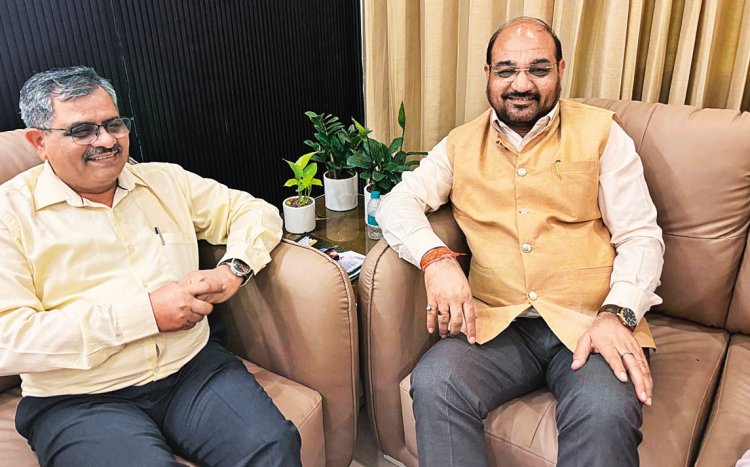
What kind of changes are needed in the research system?
When the focus was on production, our scientists were skilled in that area. Now, as we design a complete agri-food system, different skills are needed. For example, we talk about FPOs (Farmer Producer Organizations). While KVKs can provide FPO training, an expert is needed to create a business plan. These are new areas we need to integrate.
So you're saying agro-economy, research, natural resources, and climate change should all come together as a complete package?
Exactly. It shouldn’t be commodity-centric. For instance, suppose a rice variety matures in 150 days but is harvested in 155 days. While this may increase yield by half a ton, it may delay the next crop, causing a loss of one ton. We need to determine what fits best where. If a farmer has a 70-day window, what can be grown in that period? Growing a 100-day crop in a 70-day window won’t work. Redesigning is essential.
How is ICAR working in agricultural research, education, and extension?
Historically, India has had a robust system of agricultural research, education, and extension, from top to bottom. But as we’ve become more self-reliant, we started working in silos. We can’t afford that. Every institute can’t have every kind of expertise. Suppose one person specializes in something, and someone nearby specializes in another – sharing their expertise enhances the whole system. We need to consolidate these capabilities.
Agriculture is a state subject. Coordinated programs are run in state agricultural universities. Crop varieties are developed locally, recommendations are given to states, and states implement them. We must strengthen coordination with state agricultural universities. KVKs work under different bodies – some under state agri-universities, some under NGOs, some under ICAR. State extension departments also work in isolation.
We want the system to be interconnected from bottom to top. Information should flow both ways – from ground-level demand to research, and from research to farmers via extension. For this, we must create a strong National Agricultural Research Extension Education System.
Research involves two aspects – science and economics. Research is often conducted in ideal conditions, but when it reaches farmers’ fields, the economics differs. How can this be made transparent?
There is a system. First, the technology is developed. Then, it undergoes multi-location testing, followed by adaptive trials on farmers' fields. Even within a single field, differences exist – due to soil, management, etc. Even two brothers with adjacent fields may get different yields from the same variety because of management differences.
Therefore, today we need as much socio-economic research as biophysical research – on varieties, water, nutrients. We often say farmers adopt or don’t adopt technologies. But why? We must understand the behavior behind it.
No farmer wants low yields. But many decisions are influenced by relatives or community. We talked to farmers about zero tillage. They said it saves water, money, and gives good crops. But they don’t like how the field looks afterward – a behavioral issue. Agriculture is not always straightforward.
Will ICAR increase its focus on sociology, humanities, or liberal sciences?
Absolutely. But it won’t happen overnight. We are focusing on strengthening social sciences. The scope of biophysical scientists’ work is broad and includes other aspects too. We’ve seen a wide gap between average and actual yields. This shows that while technology exists, adoption is a challenge. We need to understand the reasons behind the yield gap. More than 50% of it is due to knowledge gaps. That means we must improve knowledge dissemination. Krishi Vigyan Kendras help bridge this gap.
One new technology is GM. There has been a lot of research, both in ICAR and private sector. How will this move forward?
Our focus is on science-based agricultural transformation. We cannot progress without science. We need new science to solve future challenges. There’s a regulatory process, and the matter is in court, so I won’t comment. But I will say this: science must lead the way. Change should be science-driven.
There's growing focus on Internet of Things (IoT) in agriculture. Many ICAR projects are based on it. How do you see this trend?
We must keep pace with technological progress. Otherwise, we’ll fall behind. But it should not just be a fancy term. It must be usable on the ground. The core of AI and IoT is data. Without quality, organized, and interoperable data, success is limited. AI relies on data. If AI lacks integration with natural intelligence, it won’t suffice. A balanced combination is needed. We must develop a strong data ecosystem.
We have decades of data. The Ministry is building a Digital Public Infrastructure to map every field. Agriculture relies on data from 7–8 ministries. Without fertilizer or water data, can we farm? A robust AI requires a complete data ecosystem. For small tasks, things may work, but for the big picture, quality data is essential.
Extension is a crucial component, but it is said to be underperforming. How do you see this, especially in the context of yield gaps and behaviour?
Extension is essential. Compared to the past, today’s extension is more complex. Now we talk about digital extension, which requires skills. Without skills, delivery fails. Hence, we talk about the "science of delivery." We must link the science of discovery with the science of delivery. If they function separately, problems arise.
Extension is a science in itself – the science of delivery. It requires several elements, like technology-based business models. If business grows through technology, delivery happens. If not, delivery fails. For 70 years, we’ve followed a linear extension model. We now need a mix of linear and non-linear systems. A new extension ecosystem is emerging. The private sector also has its own network. We aim to converge both public and private systems. If they work in different directions, farmers lose. We’re working towards this convergence.
Our agricultural exports have reached $50 billion. What is ICAR’s focus on export-oriented production, quality, and standards?
Our exports are based on quality – whether it’s basmati or other crops. But we must also assess what the country can afford to export. For example, producing rice in water-scarce areas for export while importing pulses and oilseeds isn’t sustainable. We're working on this. Sustainability is key. We will focus only on what benefits India and its farmers.
How can farm mechanization help bring youth back into agriculture?
We always talk about efficiency – of water, nutrient, etc. But we forget time efficiency, which is most critical, especially with climate uncertainty. Without mechanization, we can’t ensure time efficiency.
There is good progress in mechanization, but many areas still need access – like rainfed or hilly regions. Mechanization isn’t just about tractors. Planting, harvesting, inter-cultivation – these are vital. Mechanization must not deceive farmers. We need multi-utility, multipurpose quality. A farmer shouldn’t need 10 planters for 10 crops. One planter should work for all.
Mechanization must be supported by business models. A machine used only for 15 days a year will sit idle for 350 days – that’s not viable. We are discussing a national mechanization strategy and how India can feed the world. Our research and agriculture have such potential that we can feed all of Africa. In terms of quality and affordability, no one can beat us.
Private sector activities in agriculture has increased – many startups are tech-focused, big companies are in seeds and chemicals. How do you see the relationship between public research institutions and private players?
Public sector doesn’t work for profit; the private sector must. If they don’t profit, they collapse – and we understand that. But they must also consider how they contribute to national goals. CSR (Corporate Social Responsibility) must be properly channeled – currently, it's used as they please.
Second, they should assess where they can contribute. We’re mapping this at the district level – how many people from public and private sectors are engaged in extension? Are they on the same wavelength or giving farmers conflicting information? Everyone has a role and responsibility.
As universities are opening up in various places, we are discussing what the mechanism for quality control should be. It is essential to ensure the quality of education and to make it relevant.



 Join the RuralVoice whatsapp group
Join the RuralVoice whatsapp group

















